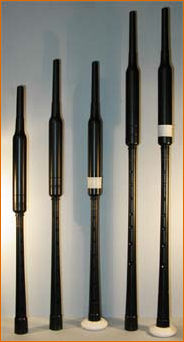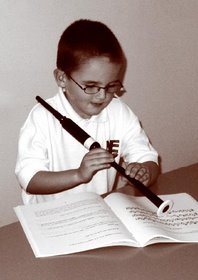We're always looking for new pipers / drummers to join our band. Experienced players can simply slot right into the ranks, but we also offer complete lessons starting right at the beginning with the basics and ending up with you playing in the band on your chosen instrument. |
||||||
One of the key objectives of the Algoa Caledonian Pipe Band is to promote and foster Scottish music in PE and we're dedicated to not only growing our band with new members, but growing the Pipe Band community in South Africa as well. Whilst every effort will be made to accommodate as many learners as possible, please be aware that your admission as a learner will depend on numbers.
Bagpipe learners will be taught by either Nicole-Kristen Lloyd, Aiden van Zyl or Derek Soutter and drumming learners either by Roy Laurie (Snare Drums) or Barbara Horwood (Tenor Drums). All learners are encouraged to stay afterwards for the band practice, have a drink at the bar and to socialize with the existing members. It also gives the learners a feel for how things work in a pipe band. Lessons are done on Wednesday nights from 18:00 to 19:00, although other nights may also be used depending on numbers. Anyone interested in learning can click here for contact details. Please direct learning inquiries at either Nicole or Derek. Learning the bagpipes is a lot like learning the violin. It's not a very sociable instrument until you're able to get to grips with how to actually play them. You can't just pick them up and away you go. Which is why all pipers learn to play first on a practice chanter, a much small, softer and easier version of the real thing. On the practice chanter you'll learn where to put your fingers, how to play the scale and all the other movements and embellishments as well as one or two tunes. Once you're capably and comfortably able to do this, you'll be able to move on to the pipes. As with the practice chanters for the bagpipes, drumming learners will need to own their own drum sticks and a practice pad to learn on. Learners will need to contact the band about suppliers for these, as there is no fixed supplier. However, drumming differs from piping in that even though it still takes a considerable amount of time to properly learn the instrument, you'll be able to play on the actual drum a lot sooner than a piper will on the bagpipes.
|
The best time to learn the pipes or drums is around the age of 12 or 13. At this age the fingers and hands are supple enough to move quickly and accurately. Lessons will still be given to younger children, but we find the mind wanders easier, so lessons generally have to be shorter and less intense. Don't let this put you off though, we regularly teach adults as old as 55, however the older one gets the harder it is to learn the pipes and drums, especially as they're a more physical instrument than others.
As with any type of learning, some people pick things up quicker than others, so if the tutors see that a learner is being held back by the others in the group, then they will be moved to a different group. Due to the limited number of tutors, this may result in changing evenings to a more suitable day. It takes an average of just over a year to progress from the very beginning to playing confidently with the band on parade so please bear this in mind when deciding if you want to learn bagpipes or drumming. The band also expects the learner to be able to dedicate sufficient time to practicing what they've learnt at home, as this is crucial to learning any instrument. The time it takes anyone to learn any musical instrument is directly related to how much time they spend practicing. We recommend practicing every day, even if it's just for 10 minutes a day. A small practice every day is better than one big practice once a week.
~~~//~~~ "The more I practice, the luckier I get." ~ Gary Player "Practice as if you're the worst, perform as if you're the best." ~ Unknown "It's not necessarily the amount of time you spend practicing that counts, it's what you put into the practice." ~ Eric Lindros "Practice is the best of all instructors." ~ Publilius Syrus (Roman Author, 1st Century B.C)  Bells Extra Special Whisky. Drink Responsibly. Not For Sale To Persons Under The Age Of 18. |
|||||

